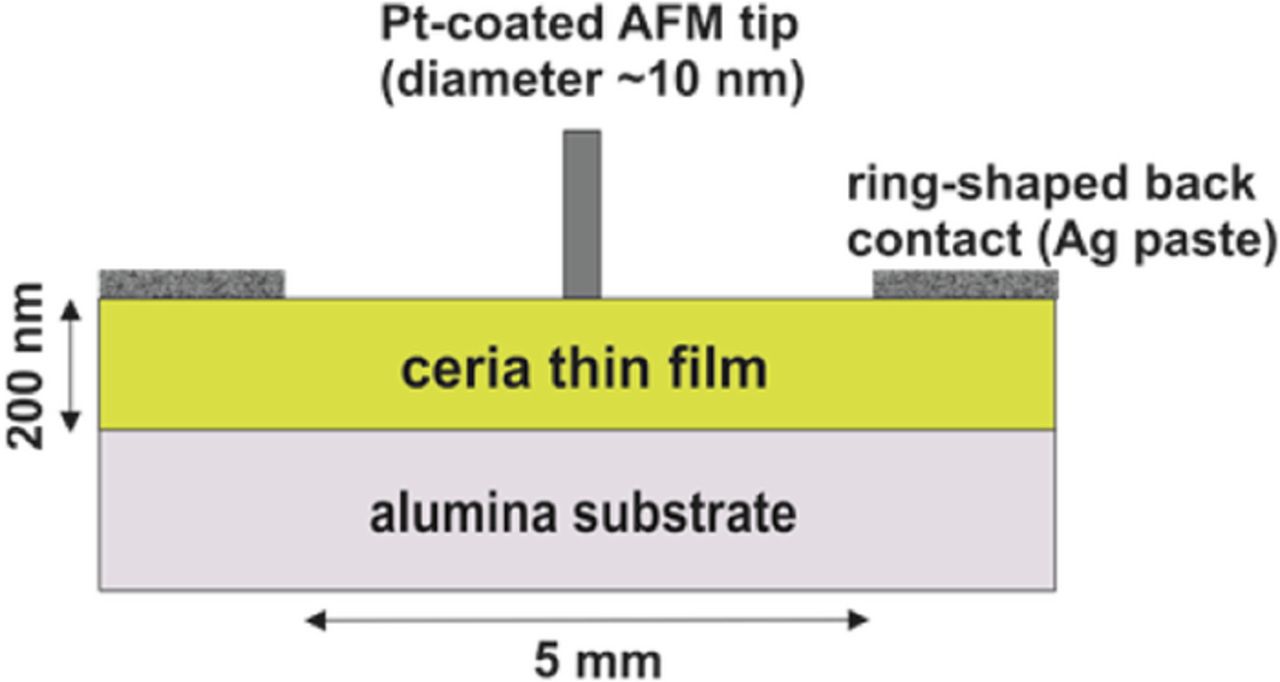In their study “Room Temperature Polarization Phenomena in Nanocrystalline and Epitaxial Thin Films of Gd-Doped Ceria Studied by Kelvin Probe Force Microscopy” Kerstin Neuhaus, Giuliano Gregori and Joachim Maier show that “the combined polarization-KPFM method is able to produce consistent results for evaluation of room temperature chemical diffusion processes. In the future, a compilation of similar experiments with variation of temperature, humidity, gas surrounding etc. could also help to further study not only the role of the microstructure but also the influence of the environment on the polarization properties of other industrially relevant oxides.” *
“The samples were first mapped in the pristine state for reference. Subsequently, the sample was polarized with up to±5 V (with regard to the AFM tip) for up to 300 s. Directly after the end of the polarization experiment continuous surface potential mapping was started.”*
“For polarization and KPFM mapping, the samples were contacted with a silver paste back contact and Pt wire. The working contact for the polarization was an AFM tip (PPP-NCSTPt) with Pt coating, which was used simultaneously as probe during KPFM mapping (cf. Fig. 1).”*

Figure 1 from “Room Temperature Polarization Phenomena in Nanocrystalline and Epitaxial Thin Films of Gd-Doped Ceria Studied by Kelvin Probe Force Microscopy”: Schematic of the experimental setup
*Kerstin Neuhaus, Giuliano Gregori, Joachim Maier
Room Temperature Polarization Phenomena in Nanocrystalline and Epitaxial Thin Films of Gd-Doped Ceria Studied by Kelvin Probe Force Microscopy
ECS Journal of Solid State Science and Technology,7 (8) P362-P368 (2018)
DOI: 10.1149/2.0011808jss
The article “Room Temperature Polarization Phenomena in Nanocrystalline and Epitaxial Thin Films of Gd-Doped Ceria Studied by Kelvin Probe Force Microscopy” by Neuhaus et. al. is an open access article distributed under the terms of the Creative Commons Attribution 4.0 License. To view a copy of this license, visit http://creativecommons.org/ licenses/by/4.0/.